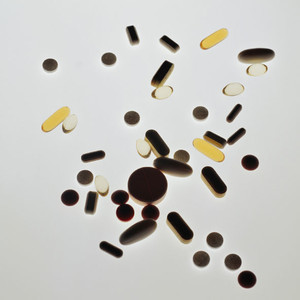The US Senate and House Judiciary Committees have reintroduced legislation to tackle anticompetitive behaviour that delays the market entry of more affordable generic drugs.
Almost three quarters of the American public think prescription drug costs as unreasonable and one quarter have chosen not to pick up their prescription due to cost. One way to tackle these issues is to promote generic drugs, which are equally effective but less expensive than brand-name small molecule drugs. However, some drug companies apply tactics to prevent these drugs from entering the market.
The Creating and Restoring Equal Access to Equivalent Samples (CREATES) Act aims to prevent anticompetitive practices that delay or even block the market entry of generic drugs and was first introduced in June 2016 [1].
The Act was reintroduced in April 2017, by both Republican and Democrat Senators. This follows the reintroduction of the Fair Access for Safety and Timely Generics (FAST) Act in May [2], which also aims to accelerate market entry for generic drugs.
The Congressional Budget Office estimates that the CREATES Act could result in a decrease in the federal deficit of over US$3 billion, with potentially greater savings for consumers and insurance companies.
The revived bill targets two delay tactics in particular. The first is when drugmakers prevent generics manufacturers from accessing samples of the brand-name drug product, so they cannot perform the bioequivalence tests that are essential for the US Food and Drug Administration (FDA) approval. FDA has received over 100 enquiries from generics makers who could not access samples.
The second is sometimes manufacturers also prevent generics producers from taking part in safety protocols, known as a Risk Evaluation Mitigation Strategy with Elements to Assure Safe Use or ‘REMS with ETASU’. This also prevents the generic drug equivalent from obtaining FDA approval for distribution.
The Act would enable generics manufacturers to seek injunctive relief if these tactics take place. Judges could rule that drugmakers must provide generics producers with the samples they need and even award damages to generics makers. The revised version of the Act also gives FDA the flexibility to approve alternative safety protocols, instead of requiring parties to create shared safety protocols, provided they meet statutory standards.
The bill ultimately aims to curtail suspect business practices that increase the prices of prescription drugs. Although it does not address all causes of high drug pricing, it is an important part of the puzzle according to Senator Patrick Leahy, who is reintroducing the bill.
References
1. GaBI Online - Generics and Biosimilars Initiative. New bill would stop brand-name pharma restricting drug samples [www.gabionline.net]. Mol, Belgium: Pro Pharma Communications International; [cited 2017 Jun 23]. Available from: www.gabionline.net/Policies-Legislation/New-bill-would-stop-brand-name-pharma-restricting-drug-samples
2. GaBI Online - Generics and Biosimilars Initiative. US introduces two new bills to promote generics [www.gabionline.net]. Mol, Belgium: Pro Pharma Communications International; [cited 2017 Jun 23]. Available from: www.gabionline.net/Policies-Legislation/US-introduces-two-new-bills-to-promote-generics
Permission granted to reproduce for personal and non-commercial use only. All other reproduction, copy or reprinting of all or part of any ‘Content’ found on this website is strictly prohibited without the prior consent of the publisher. Contact the publisher to obtain permission before redistributing.
Copyright – Unless otherwise stated all contents of this website are © 2017 Pro Pharma Communications International. All Rights Reserved.








 0
0











Post your comment